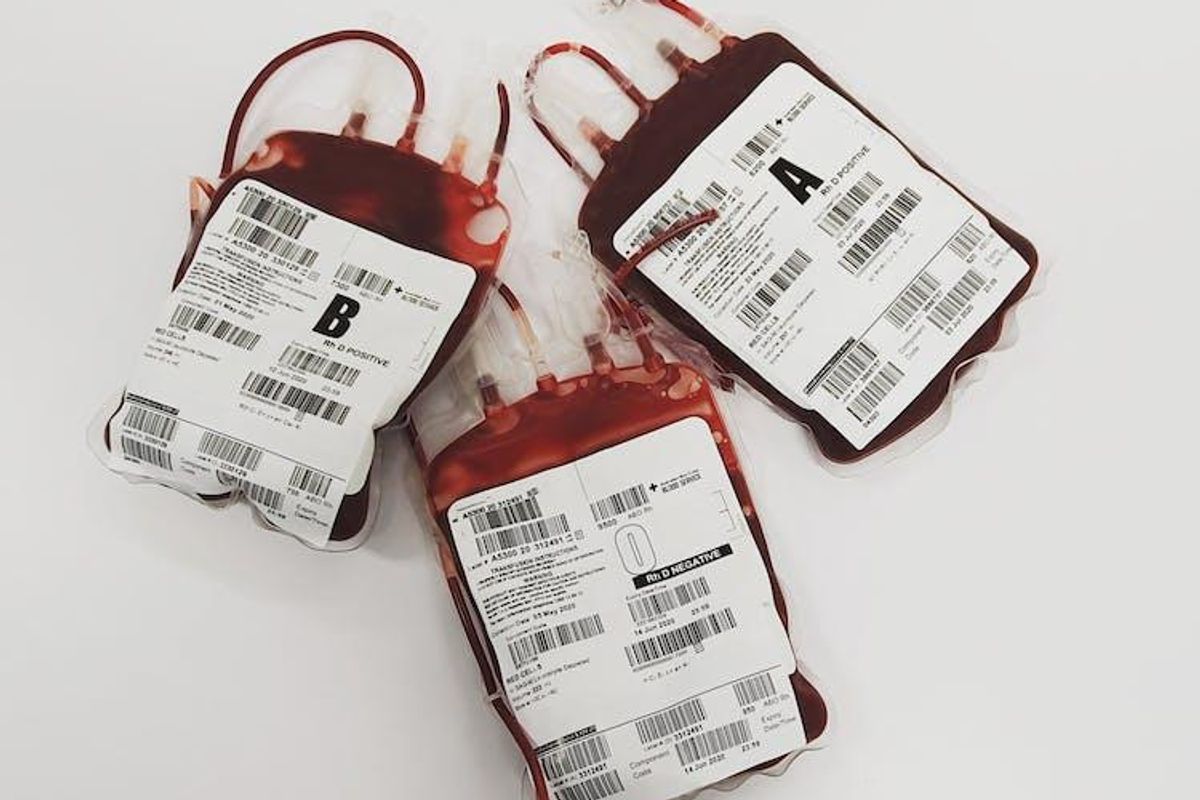The FDA says it will finally eliminate blood donor rules against gay and bisexual men
An important step forward.
Three different types of blood donations.
The AIDS epidemic that began in the early '80s cast a stigma on all men who have sex with men, regardless of their HIV status. The idea that gay and bisexual men were somehow dangerous to the general public because of a health crisis in their community added to the stigmatization that already came with being LGBTQ.
In 1983, the Food and Drug Administration (FDA) banned all men who have sex with men from donating blood. This rule stood until 2015 when the FDA lifted the lifetime ban for gay and bisexual males and limited it to men who had homosexual sex within the past year.
In 2020, the FDA eased restrictions on men who have sex with men again, due to a blood shortage caused by the COVID-19 pandemic. The abstinence period was shortened from a year to three months.
Now, the FDA looks to ease restrictions even further by eliminating bans based on sexuality and instead, focusing on individual risk through questionnaires. On November 30, the FDA released a statement saying it “will likely support a policy transition to individual risk-based donor screening questions for reducing the risk of HIV transmission.”
“The FDA remains committed to gathering the scientific data related to alternative donor deferral policies that maintain a high level of blood safety,” the statement continued. “We anticipate issuing updated draft guidance in the coming months.”
The FDA's announcement came a day ahead of World AIDS Day. This year's theme is “Putting Ourselves to the Test: Achieving Equity to End HIV.”
The statement was well-received by GLAAD, although the organization believes that the FDA has been behind the times on the issue for years.
“While today’s reports of an overdue move from the FDA is an important step, our community and leading medical experts will not stop advocating for the FDA to lift all restrictions against qualified LGBTQ blood donor candidates,” it said in a statement. “As LGBTQ leaders and medical experts have been saying for years: bans and restrictions on blood donations from gay and bisexual men are rooted in stigma, not science. Giving one set of rules to some people, and another set of rules to others, based purely on identity, is blatant discrimination.”
An FDA official told The Wall Street Journal that under the new guidelines, potential donors would be asked if they had anal intercourse with a new sexual partner within the past three months. Those who answer no will be allowed to donate.
Earlier this year, France and Greece lifted their bans on men who have sex with men completely. Greece announced the ban in January and it was applauded by LGBTQ rights groups.
“Lifting this long-lasting ban on blood donation was the least this government had to do,” Irene Petropoulou, chairperson of OLKE, a nongovernmental organization that fights for LGBT+ rights, said, according to Greek Reporter “Of course, it is great news, and we hope the government will pay more attention to other discriminations in the healthcare system and education."
France made its announcement in January as well.
“Starting on March 16, 2022, all French people, whatever their sexual orientation, will be able to donate blood,” Health Minister Olivier Véra said. “We are ending an inequality that is no longer justified,” he added.
- A woman gives her partner the best surprise ever: a new shot at life. ›
- I saved my 'virginity' for marriage, and it worked out great — until it didn't. ›
- France to allow gay, bisexual men to donate blood ending ‘an inequality that’s no longer justified’ ›
- Plasma donor with rare antibody saved 2.4 million babies - Upworthy ›
- Baffled scientists discover 69-year-old woman from Guadeloupe has an entirely new blood type - Upworthy ›

